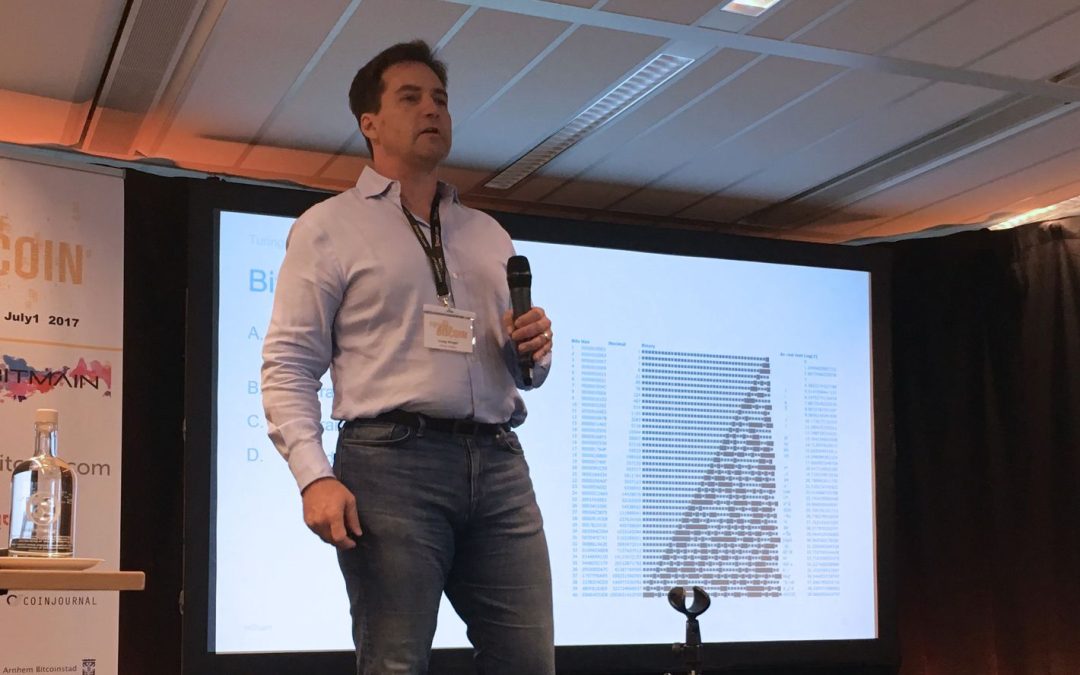Craig Wright is an Australian computer scientist and businessman best known for his controversial claim that he is bitcoin’s creator, Satoshi Nakamoto.
Born in 1970, Wright is the chief scientist at nChain, a blockchain startup that promotes the use of bitcoin SV (BSV), a hard fork of the bitcoin cash (BCH) protocol (which is itself a fork of bitcoin).
In 2015, tech publications Wired and Gizmodo published separate articles speculating that Wright was Nakamoto after receiving leaked documents. In 2016, Wright publicly claimed that he was Nakamoto in a blog post. However, Wright’s claim has been met with much skepticism and he has been unable to produce incontrovertible evidence to support his claim.
Namely, after initially pledging to move bitcoin mined by Satoshi early in the project’s lifetime, Wright later reneged on his promise and declined to do so.
Wright has nonetheless maintained his claim, and in 2019, filed a United States copyright registration for the bitcoin white paper. The U.S. Copyright Office subsequently said it did not recognize Wright as Satoshi, and noted that anyone can file for copyright if they have $55 and a stable internet connection.
Likewise, the Copyright Office said that it did not investigate “whether there is a provable connection between the claimant and the pseudonymous author.” The office’s statement rebutted a claim by Wright’s press representative that the government had accepted Wright as Satoshi.
Wright has filed lawsuits against multiple people who have called him a “fraud” for claiming to be Nakamoto, including ethereum co-founder Vitalik Buterin, podcaster Peter McCormack, Hodlnaut (a pseudonymous Twitter user) as well as bitcoin cash promoter Roger Ver.
Wright has also come to blows with Ver over the future of bitcoin cash. In 2019, bitcoin SV came into existence after a hard fork of the Bitcoin Cash blockchain. The fork split the Bitcoin Cash blockchain into two separate iterations, with BSV going on to host a Twitter competitor and other decentralized apps (apps).
Controversy has continued to surround Wright. In late May 2020, a list of bitcoin addresses Wright had provided as being his own in an ongoing court case were used to sign a public message calling Wright a “fraud,” suggesting he does not in fact own or control them. A week later Wright pushed back, maintaining that he does indeed have access to the “Satoshi” addresses filed in court.
At the start of 2021, Wright’s lawyers sent letters to bitcoin resource repositories Bitcoincore.org and Bitcoin.org threatening to sue them over copyright infringement for featuring the bitcoin whitepaper on their sites. The former site removed the paper to avoid the costs of fighting the suit while the latter left it up. In a show of solidarity against Wright, an army of sites then uploaded the whitepaper, including the Colombian and Estonian government sites.
The California-based Cryptocurrency Open Patent Alliance (COPA) asked the UK High Court in April 2021 to declare that Wright did not have copyright ownership of the whitepaper. However, there has been no apparent conclusion to that suit. Meanwhile, Wright actually won his case against Bitcoin.org in London the following June, when the pseudonymous owner of the site refused to appear in court.
Since 2020, a further lawsuit has been in the offing as the brother of Wright’s late friend David Kleiman sought restitution of half the 1.1 million bitcoins that Wright claims to own as Satoshi, even though Wright himself has still not been able to conclusively prove he owns them. It finally came to trial in Miami in November 2021, with Ira alleging his brother David had been Wright’s business partner and seeking a total of around $180 billion for the relevant bitcoins, intellectual property and punitive damages.
The suit concluded in December with both sides claiming a positive outcome. Wright was only ordered to pay $100 million for claiming to own the company that he and Kleiman had founded together. He was vindicated in denying that the pair had been business partners.














